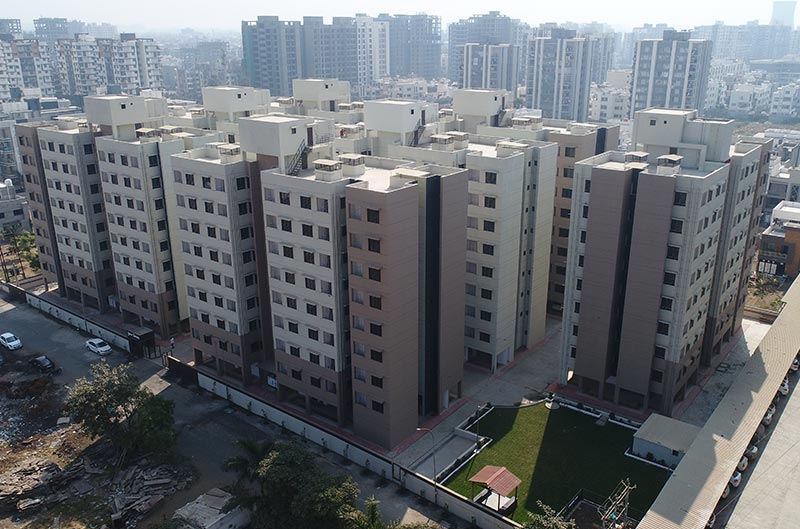Pune to Get 4,173 Affordable Homes Under PMAY Phase 2
Following the successful completion of 2,658 apartments under the first phase of the Pradhan Mantri Awas Yojana (PMAY) in 2023, the Pune Municipal Corporation (PMC) is set to construct 4,173 additional units in the second phase of the scheme. Aimed at addressing the housing needs of lower and middle-income groups, these new affordable homes will be built across five strategic locations—Balewadi (296 units), Kondhwa (736), Dhanori (676), Hadapsar (2,000), and Vadgaon Khurd (465). The expansion aligns with Prime Minister Narendra Modi’s announcement of PMAY’s second phase in September last year, further reinforcing the government’s commitment to housing for all. Municipal Commissioner Rajendra Bhosale confirmed that PMC has submitted the project proposal for central approval, with plans to integrate Affordable Rental Housing (ARH) into the initiative.
PMC Aims for Smoother Execution, Learning from Phase 1
PMC officials acknowledge the challenges faced during the first phase of PMAY, particularly beneficiary participation. Of the selected applicants, 5,000 opted out due to personal and financial constraints, highlighting the need for better engagement strategies in the upcoming phase. City Engineer Prashant Waghmare assured that Phase 2 would address these shortcomings, incorporating improved outreach efforts to attract beneficiaries. Financially, the project will benefit from central and state government assistance, with the Union Government contributing ₹1.5 lakh per apartment and the Maharashtra Government providing an additional ₹1 lakh. However, funding alone may not resolve all bottlenecks, as PMC’s reliance on Transfer of Development Rights (TDR) for land acquisition remains a critical factor in the project’s smooth execution.
Sustainability and Urban Planning: Addressing Pune’s Housing Shortfall
With Pune’s rapid urbanisation, ensuring sustainable housing solutions has become imperative. The second phase of PMAY is expected to cater to the city’s ever-expanding lower-income workforce, providing much-needed affordable rental and ownership options. Experts believe that an integrated approach to urban planning—focusing on accessible public transport, green building practices, and energy efficiency—should be embedded into the initiative. Affordable housing projects must go beyond construction and include sustainable infrastructure that reduces long-term environmental and economic costs. With Hadapsar alone accounting for nearly 50% of the proposed units, urban planners stress the need for better civic amenities, transport connectivity, and waste management solutions to prevent overburdening existing infrastructure.
A Civic Perspective: The Role of Public Policy in Affordable Housing
PMC’s push for affordable housing through PMAY underscores the critical role of municipal governance in bridging Pune’s housing gap. While Mumbai’s municipal authorities have successfully implemented several large-scale affordable housing projects, Pune continues to grapple with land availability, cost constraints, and regulatory bottlenecks. Chief Minister Devendra Fadnavis recently reviewed the project, urging officials to fast-track approvals and implementation. Civic activists argue that beyond increasing housing supply, the administration must address fundamental urban challenges, including water availability, sewage systems, and public transport expansion. Without parallel investments in civic infrastructure, Pune’s housing crisis may persist despite PMAY’s large-scale interventions. The second phase of PMAY must be seen as a step towards holistic urban development, ensuring that affordable housing remains viable, accessible, and sustainable in the long run.


